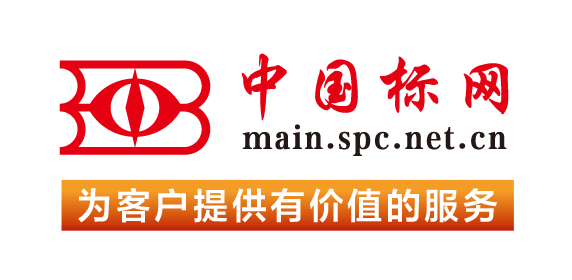This specification covers hot- and cold-worked precipitation-hardenable nickel alloy rod, bar, forgings, and forging stock for high-temperature service. Chemical analysis shall be performed on the alloy and shall conform to the chemical composition requirement in carbon, manganese, silicon, phosphorus, sulfur, chromium, cobalt, molybdenum, columbium, tantalum, titanium, aluminum, zirconium, boron, iron, copper, and nickel. The material shall follow recommended annealing treatment, solution treatment, stabilizing treatment, and precipitation hardening treatment. Tension testing, hardness testing and stress-rupture testing shall be performed on the material and shall comply to the required tensile strength, yield strength, elongation, reduction in area, and Brinell hardness.1.1 This specification2 covers hot- and cold-worked precipitation-hardenable nickel alloy rod, bar, forgings, and forging stock for moderate or high temperature service (Table 1).1.2 The values stated in inch-pound units are to be regarded as standard. The values given in parentheses are mathematical conversions to SI units that are provided for information only and are not considered standard.1.3 This standard does not purport to address all of the safety concerns, if any, associated with its use. It is the responsibility of the user of this standard to become familiar with all hazards including those identified in the appropriate Safety Data Sheet (SDS) for this product/material as provided by the manufacturer, to establish appropriate safety, health, and environmental practices, and determine the applicability of regulatory limitations prior to use.1.4 This international standard was developed in accordance with internationally recognized principles on standardization established in the Decision on Principles for the Development of International Standards, Guides and Recommendations issued by the World Trade Organization Technical Barriers to Trade (TBT) Committee.
定价: 590元 / 折扣价: 502 元 加购物车
1.1 This specification covers cold-rolled carbon extra deep drawing steel (EDDS) sheet, in coils and cut lengths. This material is intended for fabricating identified parts where extremely severe drawing or forming in excess of the abilities of materials covered by Specifications A 620/A 620M or A 963/A 963M may be involved, or when a product essentially free of aging is required.1.2 This specification is applicable to orders in either inch-pound units (as A 969) or SI units (as A 969M).
This specification covers UNS R60001, R60802, R60804, and R60901 wrought zirconium and zirconium alloy bars, rods, and wires. All material grades covered should conform to the required chemical composition requirements. Elements that are intentionally added to the melt should be identified, analyzed and reported in the chemical analysis. The zirconium and zirconium alloys should be made from ingots produced by vacuum or plasma arc melting, vacuum electron-beam melting, a combination of the three methods, or other melting processes conventionally used for reactive metals. All processes should be performed in furnaces specifically for reactive metals. Mill products included in this specification should be formed with conventional extrusion, forging, or rolling equipment that is used in primary ferrous and nonferrous plants. The cold worked and annealed materials should be in fully annealed condition unless otherwise specified. Hot worked shapes should be furnished in not descaled, mechanically descaled, or mechanically descaled and pickled finish, while cold-worked shapes should be furnished in cold-worked, ground, or pickled finish.1.1 This specification covers four grades of wrought zirconium and zirconium alloy bars, rod, and wire as follows:1.1.1 R60001—Unalloyed grade,1.1.2 R60802—Zirconium-Tin alloy (Zircaloy 2),1.1.3 R60804—Zirconium-Tin alloy (Zircaloy 4), and1.1.4 R60901—Zirconium-Niobium alloy.1.2 Unless a single unit is used, for example corrosion mass gain in mg/dm2, the values stated in either inch-pound or SI units are to be regarded separately as standard. The values stated in each system are not exact equivalents; therefore each system must be used independently of the other. SI values cannot be mixed with inch-pound values.1.3 The following precautionary caveat pertains only to the test method portions of this specification. This standard does not purport to address all of the safety concerns, if any, associated with its use. It is the responsibility of the user of this standard to establish appropriate safety, health, and environmental practices and determine the applicability of regulatory limitations prior to use.1.4 This international standard was developed in accordance with internationally recognized principles on standardization established in the Decision on Principles for the Development of International Standards, Guides and Recommendations issued by the World Trade Organization Technical Barriers to Trade (TBT) Committee.
定价: 590元 / 折扣价: 502 元 加购物车
5.1 The emission of mercury during crude oil refining is an environmental concern. The emission of mercury may also contaminate refined products and form amalgams with metals, such as aluminum.5.2 When representative test portions are analyzed according to this procedure, the total mercury is representative of concentrations in the sample.1.1 This test method covers the procedure to determine the total mercury content in a sample of crude oil. This test method can be used for total mercury determination in natural and processed liquid and oil products (gasoline, naphtha, etc.).1.2 This test method may be applied to samples containing between 5.0 ng/mL to 350 ng/mL of mercury. The results may be converted to mass basis.1.3 The values stated in SI units are to be regarded as standard. No other units of measurement are included in this standard.1.4 This work has been published in “Determination of Mercury in Crude Oil by Atomic Spectroscopy.”21.5 WARNING—Mercury has been designated by many regulatory agencies as a hazardous substance that can cause serious medical issues. Mercury, or its vapor, has been demonstrated to be hazardous to health and corrosive to materials. Use Caution when handling mercury and mercury-containing products. See the applicable product Safety Data Sheet (SDS) for additional information. The potential exists that selling mercury or mercury-containing products, or both, is prohibited by local or national law. Users must determine legality of sales in their location.1.6 This standard does not purport to address all of the safety concerns, if any, associated with its use. It is the responsibility of the user of this standard to establish appropriate safety, health, and environmental practices and determine the applicability of regulatory limitations prior to use.1.7 This international standard was developed in accordance with internationally recognized principles on standardization established in the Decision on Principles for the Development of International Standards, Guides and Recommendations issued by the World Trade Organization Technical Barriers to Trade (TBT) Committee.
定价: 590元 / 折扣价: 502 元 加购物车
 购物车
购物车 400-168-0010
400-168-0010











 对不起,暂未有“cold”相关搜索结果!
对不起,暂未有“cold”相关搜索结果!













